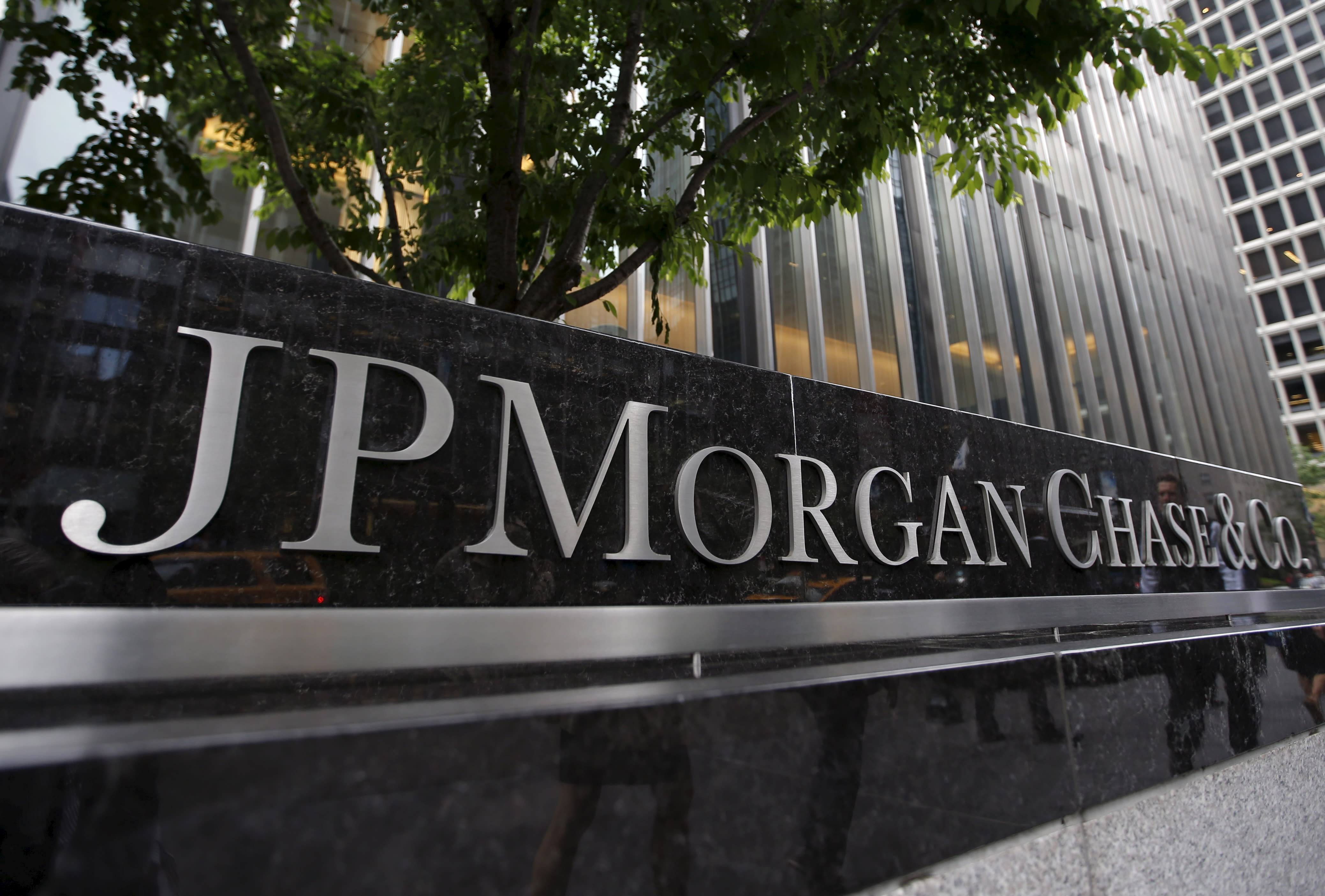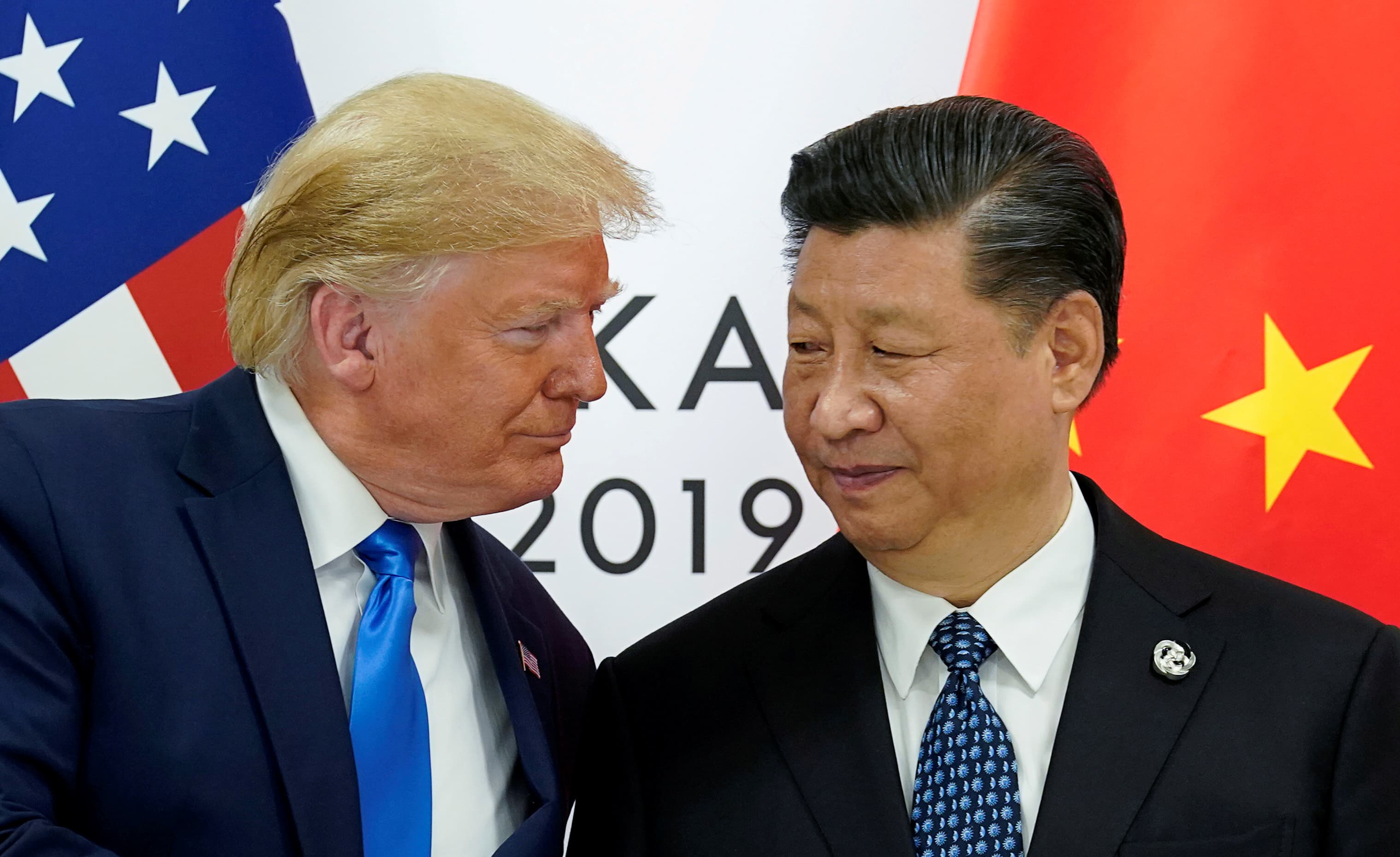
JPMorgan Chase’s (JPM), the largest U.S. bank by assets, kicked off earnings season for the big banks on Tuesday, with fourth-quarter results that beat Wall Street estimates.
The bank beat on the top and bottom lines, bolstered by higher lending and deal-making. The results sent JPM’s shares higher by nearly 2% from Monday’s close to $139.50.
Here were the key figures versus the expectations, according to analysts polled by Bloomberg.
Revenue (adjusted): $29.2 billion vs $27.9 billion expected.
Earnings per share (adjusted): $2.57 vs $2.36 per share expected
JPMorgan’s net income for the fourth quarter came in at $8.5 billion, up 21%. Even amid widespread economic uncertainty and market volatility, the bank posted record full-year net income of $36.4 billion, or $10.72 per share — making 2019 its most profitable year ever.
In a statement, JPMorgan CEO Jamie Dimon highlighted the resilience and strength of U.S. consumers as he applauded a “solid year” of record revenue and income.
“While we face a continued high level of complex geopolitical issues, global growth stabilized, albeit at a lower level, and resolution of some trade issues helped support client and market activity towards the end of the year,” Dimon said.
“The U.S. consumer continues to be in a strong position and we see the benefits of this across our consumer businesses,” he added.
Indeed, brisk consumer activity was a major reason for JPMorgan’s success during the fourth quarter. The bank’s consumer and community units saw client investment assets up 27% and posted a 5% leap in average deposits.
Meanwhile, credit card sales volumes were up 10%, which Dimon noted was driven by a “robust holiday season” as merchant processing volumes climbed 7%.
Net interest income, a closely-followed metric, came in at $14.3 billion, down by 2% amid a mix of lower interest rates, rising balance sheets and a boost to net interest income.
Elsewhere, JPMorgan maintained its No. 1 spot for global investment banking fees, with 9% of the wallet share in 2019. Dimon noted that the firm grew its investment banking wallet to the highest level in a decade, and held the top spot for the 11th consecutive year.
During the quarter, the bank experienced a big rebound in trading, with total markets revenue coming in at $5 billion, up 56% from last year. Fixed income revenue rebounded 86% to come in at $3.4 billion, “benefitting from a favorable comparison against a weak prior year.” Equity markets revenue rose 15% to $1.5 billion, driven by higher revenue in prime and cash equities.
The stock, traded on the New York Stock Exchange, gained more than 41% in 2019, outperforming the S&P 500 Index’s (GSPC) 25.8% rally during the year.
Dimon reiterated the firm’s commitment to investing and growing its lines of business. Last year, JPMorgan added more than 70 new branches across 16 markets, while expanding its commercial banking footprint internationally.
Dimon also touted that the firm became “the first U.S. bank to be approved for a majority-owned securities business in China.”
The CEO touted JPMorgan’s “large investments in technology, including AI, cloud, digital and payments, as well as other investments in innovation, talent, security and risk controls. These actions will help us continue to grow and serve our clients going forward,” he said.
Wells Fargo (WFC) and Citigroup (C) will also report on Tuesday, followed by Bank of America (BAC) and Goldman Sachs (GS) on Wednesday and Morgan Stanley (MS) on Thursday.
Julia La Roche is a Correspondent at Yahoo Finance. Follow her on Twitter.
Read the latest financial and business news from Yahoo Finance
Follow Yahoo Finance on Twitter, Facebook, Instagram, Flipboard, SmartNews, LinkedIn, YouTube, and reddit.
https://news.google.com/__i/rss/rd/articles/CBMiSmh0dHBzOi8vZmluYW5jZS55YWhvby5jb20vbmV3cy9qcG1vcmdhbi1xNC1lYXJuaW5ncy1yZXN1bHRzLTExNTI0ODQyMi5odG1s0gFSaHR0cHM6Ly9maW5hbmNlLnlhaG9vLmNvbS9hbXBodG1sL25ld3MvanBtb3JnYW4tcTQtZWFybmluZ3MtcmVzdWx0cy0xMTUyNDg0MjIuaHRtbA?oc=5
2020-01-14 12:38:00Z
52780552534159




